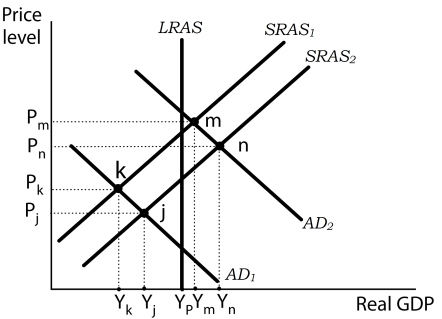Exam 32: Macroeconomic Policy Around the World
Exam 1: Welcome to Economics148 Questions
Exam 3: Demand and Supply253 Questions
Exam 4: Labor and Financial Markets117 Questions
Exam 5: Elasticity256 Questions
Exam 6: Consumer Choices239 Questions
Exam 7: Cost and Industry Structure244 Questions
Exam 8: Perfect Competition226 Questions
Exam 10: Monopolistic Competition and Oligopoly234 Questions
Exam 11: Monopoly and Antitrust Policy237 Questions
Exam 12: Environmental Protection and Negative Externalities189 Questions
Exam 13: Positive Externalities and Public Goods169 Questions
Exam 14: Poverty and Economic Inequality184 Questions
Exam 15: Issues in Labor Markets: Unions, Discrimination, Immigration188 Questions
Exam 16: Information, Risk, and Insurance137 Questions
Exam 17: Financial Markets187 Questions
Exam 18: Public Economy149 Questions
Exam 19: The Macroeconomic Perspective137 Questions
Exam 20: Economic Growth146 Questions
Exam 21: Unemployment162 Questions
Exam 22: Inflation166 Questions
Exam 23: The International Trade and Capital Flows135 Questions
Exam 24: The Aggregate Demandaggregate Supply Model223 Questions
Exam 25: The Keynesian Perspective175 Questions
Exam 26: The Neoclassical Perspective176 Questions
Exam 27: Money and Banking181 Questions
Exam 28: Monetary Policy and Bank Regulation218 Questions
Exam 29: Exchange Rates and International Capital Flows137 Questions
Exam 30: Government Budgets and Fiscal Policy198 Questions
Exam 31: The Impacts of Government Borrowing138 Questions
Exam 32: Macroeconomic Policy Around the World121 Questions
Exam 33: International Trade112 Questions
Exam 34: Globalization and Protectionism135 Questions
Select questions type
The body of economic thought associated with 19th century economist
Free
(Multiple Choice)
4.9/5  (28)
(28)
Correct Answer:
C
According to new classical economics, short-run stabilization policy works only if it
surprises people.
Free
(True/False)
4.8/5  (36)
(36)
Correct Answer:
True
If the economy's short-run aggregate supply curve is upward sloping, a decrease in aggregate demand will cause
Free
(Multiple Choice)
4.7/5  (33)
(33)
Correct Answer:
B
Which of the following was not an explanation for the lower volatility of the U.S. economy during the 25-year period that preceded the Great Recession?
(Multiple Choice)
4.8/5  (29)
(29)
In the 1960s, despite the successful application of expansionary fiscal policy in the United States, Milton Friedman argued that
(Multiple Choice)
4.8/5  (39)
(39)
New classical economists argue that unless people are taken by surprise, a decrease in aggregate demand will cause
(Multiple Choice)
5.0/5  (38)
(38)
The hypothesis that assumes that individuals form expectations about the future based on
Available information and that individuals act on that information is called the
(Multiple Choice)
4.8/5  (42)
(42)
Keynes shifted the emphasis in economics from the concept of aggregate supply to the
concept of aggregate demand.
(True/False)
5.0/5  (44)
(44)
David Ricardo focused on the economy in the _______ and on the forces that determined an
Economy's _______.
(Multiple Choice)
4.9/5  (28)
(28)
The monetarist school of economics believes that changes in the money supply are the primary causes of changes in nominal GDP.
(True/False)
4.7/5  (33)
(33)
Figure 17-1  -Refer to Figure 17-1. Which price level and output level best illustrates where the U.S. economy was before the Great Depression began?
-Refer to Figure 17-1. Which price level and output level best illustrates where the U.S. economy was before the Great Depression began?
(Multiple Choice)
4.8/5  (33)
(33)
An important distinction between the classical and Keynesian view of the economy is that
(Multiple Choice)
4.8/5  (37)
(37)
In 1979, the CPI rose 13.5%, the highest inflation rate recorded in the twentieth century in the U.S. Public opinion polls in 1979 consistently showed that most people regarded inflation as the leading problem facing the U.S. How did the Fed respond to this situation?
(Multiple Choice)
4.8/5  (28)
(28)
If prices and wages are sticky, a decrease in aggregate demand will cause
(Multiple Choice)
4.8/5  (31)
(31)
The theory that dominated macroeconomic thinking in the 1960s was
(Multiple Choice)
4.7/5  (45)
(45)
Monetarists argue that impact lags associated with changes in the money supply are long and variable.
(True/False)
4.9/5  (38)
(38)
When consumers and producers operate under rational expectations,
(Multiple Choice)
4.8/5  (42)
(42)
In the initial stages of the Great Depression, fiscal authorities responded to the decline in
Output by
(Multiple Choice)
4.8/5  (39)
(39)
What are the main arguments in favor of stabilization policy? What are the main arguments against stabilization policy?
(Essay)
4.8/5  (39)
(39)
Showing 1 - 20 of 121
Filters
- Essay(0)
- Multiple Choice(0)
- Short Answer(0)
- True False(0)
- Matching(0)